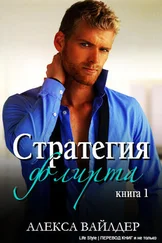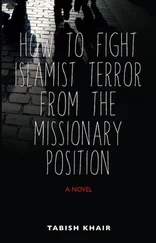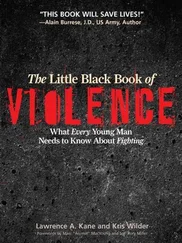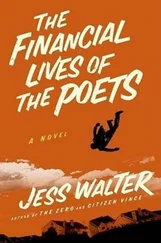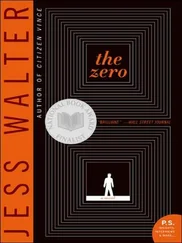Behind them, shouts and angry voices reminded her that they were being pursued.
The base of the huge, white-stone shrine was triangular in cross-section, the walls rising several feet in height, the bright-hued lights of the shrine casting shifting shadows. Knots and clusters of people gathered, chattering and laughing as a remix of a popular American song played. Stone led Wren into the crowds, putting his back to the stone and pulling Wren against his chest.
The crowd shifted and changed, but never thinned, providing effective cover. The pursuers were pushing through the crowd, shoving and elbowing, drawing dirty looks and Filipino curses that quickly faded when the offended tourist saw the brandished pistols. Using Wren’s body as cover for his actions, Stone checked the loads in his magazine and slammed it home once more, then returned his attention to their pursuers, who were now spread out in pairs. One of the men pulled a cell phone from the hip pocket of his khakis and dialed a number.
Wren tried to regain control of her breathing, tried to suppress the burning in her lungs and the screaming of her injured ribs. Stone had one hand against his side, his face a mask of concentration. When one of the men turned their way, Stone ducked his head, but wasn’t quick enough. The man whistled for his nearest friend, who trotted over. The first one pointed at Stone and Wren, the second nodded, and they moved in tandem.
Wren’s heart was pounding out of her chest, both from fear and exertion. “They’ve seen us,” she whispered.
“I know. I’ve gotta even the playing field a little.”
“What? What are you going to do?”
Stone stepped in front of Wren, putting his back to her front and pinning her against the base of the shrine. “Buying us time.”
Wren felt panic shoot through her. He was going to fight again. Right out in the open, in the middle of a crowded park. People were being hurt, maybe even killed because of her. Stone was tensed in front of her, his stance wide, pistol held by his thigh.
All Wren could see was his back, the flagstones under her feet, the spuming fountain off to the right. She heard Stone pull the slide on his pistol, felt him step away a couple inches.
Shoes scuffed to a stop, dirty white ADIDAS sneakers. Wren wanted to close her eyes, but she couldn’t. She peered around Stone. Two men, both armed, less than six feet away.
“You come now. Give us dis girl, Cervantes, he let it all go, let you go home. All he wants is da girl.”
Stone laughed, a mirthless bark of disbelief. “Yeah, okay,” he said, his voice dripping sarcasm. “How about you two walk away now, while you’re still alive.”
Wren tasted the tension in the air, felt the danger like palpable waves. The other park-goers had noticed the standoff and were quickly scattering. Wren wanted to run too. She wanted to close her eyes and pretend this wasn’t happening. But she forced herself to watch, to pay attention, to be ready. Stone’s fist rose, his palm cupping the butt of the pistol.
Seconds passed like hours, drawn out like stretched taffy.
She saw it happening. She watched one of the Filipino men raise his pistol as if in slow-motion, his lips drawing back in a rictus. Before he could get his gun level, Stone’s pistol barked— BLAMBLAM —and then Stone shifted, just the tip of the barrel twitching slightly, and then— BLAMBLAM— and both men dropped to the ground. Screams echoed, shrieks and shouts. Blood pooled like spreading inkblots.
Wren felt herself jerked into a run, and she ran, but she couldn’t wrench her gaze away from the dead men, eyes open and staring at the dark sky, holes in foreheads, lives ended. Dead men. Dead men. She tried to breathe, but the sight of the blood glinting purple and blue and red in the shifting technicolor fountain lights stole her breath.
“Don’t look. It was us or them.” Stone pushed her ahead of him, forcing her look away. His touch on her shoulder vanished momentarily, and she saw him stoop and scoop up a dropped pistol, and then again, and then he was behind her, propelling her, running with her.
She heard sobs break from her chest, slip through her lips. She clacked her teeth together, silencing herself.
A playground, railings and tube slides and empty benches, waving treetops all around them, soughing in the wind. It was still misting, not quite rain, but everything gleamed slickly wet. Sirens howled, the sirens of authority always too far behind. Shouts, a gunshot.
Wren ran on autopilot, guided by Stone’s hand on her shoulder, turning her this way and that. Lungs and legs burned, but she ran on. Ribs protested, ached, but she ran on. They came to the other side of the circular park, traffic a thick white-light ribbon in the wet midnight darkness.
Another ribbon of cars, now the red of receding tail lights.
“I think that’s Quezon Avenue,” Stone said, more to himself than to Wren. “I think that’ll take us toward the Embassy.”
“Why can’t we just take a taxi?” Wren asked, wondering if it was a stupid question.
Stone hauled her through the traffic, following close behind a man on a bike who seemed entirely unafraid of the rushing cars and trucks. “Same reason we can’t go to a hospital or the police: because those places are too public and Cervantes has informants everywhere. Bus drivers don’t ever really see their passengers, while taxi drivers will. And Cervantes might have enough manpower to question taxi drivers, but not to canvass everyone who rode on a bus.” A bus nosed around the traffic circle and onto Quezon Avenue, stopping a few hundred feet away from Stone and Wren. “Get on that bus!” Stone urged.
Wren ran, pushing her exhausted body as fast as she could go. She stumbled, felt herself lifted onto the bus and then into a seat next to Stone, who was panting, pressing a palm to his side.
“Rest for a minute, baby,” he muttered into Wren’s ear. “We’re safe for the moment.”
She shut her eyes and rested her head on his shoulder. Would they ever be able to stop running? Hard lumps at his waistband prodded at her hip—his confiscated pistols. He tucked her hair behind her ear with his thumb. Sounds faded to a blur, and Stone’s arm around her shoulders was a comforting weight, enough reassurance to let her slip under.
15
Stone didn’t dare close his eyes. If he closed his eyes, he would sleep too, and that would get them killed. He had to be alert. He had to watch. No one on the packed bus seemed suspicious, but you never knew. He scanned each face around him, watched the cityscape pass through the window, tried to plan, to distract himself from the heavy weight of exhaustion.
The exhaustion itself was a distraction, though. It kept him from seeing the faces of the men he’d killed.
He blinked, clearing the blur, fighting the sliding, aching, scratchy burn of his eyelids. To keep himself awake, he thought of Wren, of her dark, soft skin pressed against his. Her sighs and moans in his ear, her fingers on his chest as she rode him to mutual climax.
He shifted in his seat and glanced at her. She seemed so innocent, asleep beside him, rocking as the bus jounced, head lolling against his shoulder.
The bus seemed to get darker, quieter. He blinked hard, rubbed his eyes, pinched himself, but the weight was too much.
Starts and stops filtered through his awareness, but couldn’t penetrate. He felt a strange desperation inside his chest, the swelling of complete unconsciousness rising up. He fought it.
“Banawe stop!” The voice of the driver, muddy and accented and distant.
Time and silence; Stone clawed at the sleep dragging him down. He heard Wren moan beside him.
More time; more silence.
“Cruz! Vicente Cruz stop!”
Читать дальше

